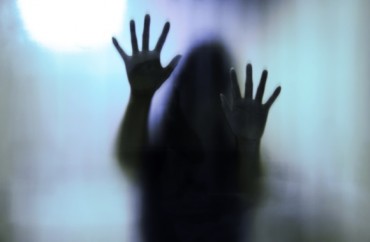
A University of Pennsylvania class is focused on the study of witchcraft and demonic possession, complete with screenings of The Exorcist and The Blair Witch Project and readings and discussions on understanding witches and their “social marginalization” through the centuries.
The course, “Witchcraft and Possession,” debuted in 2010 and continues to be taught this fall by history professor Robert St. George. It aims to explore “world witchcraft and possession from the persecutions of the early seventeenth century through the rise of Wicca in the twentieth century,” its online description states.
“The mere mention of these terms, or of such close cousins as demonology, sorcery, exorcism, magic, and the witches Sabbath, raises clear ethnographic and historical challenges,” the course description adds. “How can the analysis of witchcraft–including beliefs, patterns of accusation, the general social position of victims, the intensity and timing of witch hunts, and its relation to religious practice, law, language, gender, social marginalization, and property–lead us to a more humane understanding of belief and action?”
Portions of films such as The Exorcist, The Blair Witch Project, The Crucible and others are scheduled to be screened for the class, the description notes.
St. George and campus officials did not respond to requests for comment by The College Fix.
A copy of the course’s Fall 2013 syllabus obtained by The Fix indicates the overall subject matter is rigorously studied and viewed largely from a historical context.
The semester-long course traces the historical origins of witchcraft, and spends time studying witch hunting, with several readings on seventeenth century witch hunts in New England and London, its syllabus states.
Reading assignments include portions from works such as “Facts and Fiction: The Iconography of Demons In German Vernacular Manuscripts,” “Demons: Mediators between This World and the Other/Essays on Demonic Beings from the Middle Ages to the Present” and “The Uses of Supernatural Power: The Transformation of Popular Religion in Medieval and Early-Modern Europe.”
On possession, the class reads Michel de Certeau’s “The Possession at Loudon,” a book focused on the historical tale of “Father Urbain Grandier, convicted of sorcery that led to the demonic possession of the Ursuline nuns of provincial Loudun in France,” its online description states.
Other readings focus on many other famous witch-hunt and possession accounts, mainly from the late sixteenth and early seventeenth centuries.
The class also delves into modern times and new age beliefs, according to the syllabus.
Reading portions come from books such as “Belief Beyond Boundaries: Wicca, Celtic Spirituality and the New Age,” which looks at how “alternative spiritualities traditionally classed as ‘New Age’ or new religious movements have grown exponentially in recent years,” its online description states. Other readings are taken from “The Triumph of the Moon: A History of Modern Pagan Witchcraft” and “Witchcraft Today.”
Taking a broad academic analysis of witchcraft and possession, the course is cross-listed and awarded credit within Penn’s religious studies, gender studies and anthropology programs.
The course has received mixed reviews from Penn students, according to the university’s internal course review system. It received 2.2 out of 4 for course quality, according to the system, which mimics the 4.0 GPA system.
The professor, St. George, has received a 2.6 out of 4 for instructor quality. Penn Students have ranked the course a 2 out of 4 for class difficulty. A lower number means the class is less difficult.
St. George is a decorated scholar who has taught at Penn since 1999.
Like The College Fix on Facebook / Follow us on Twitter
IMAGE: Shutterstock






Please join the conversation about our stories on Facebook, Twitter, Instagram, Reddit, MeWe, Rumble, Gab, Minds and Gettr.